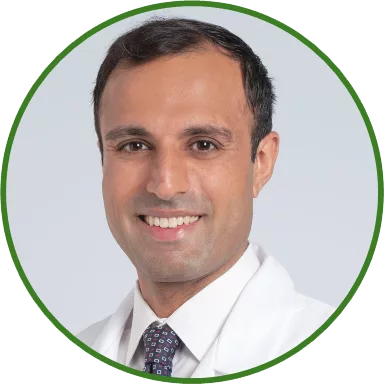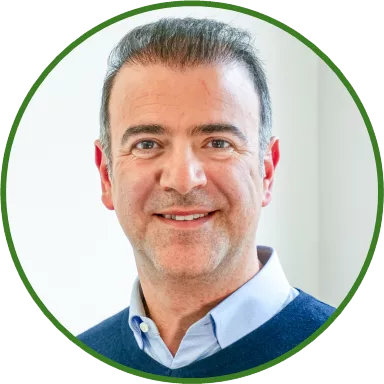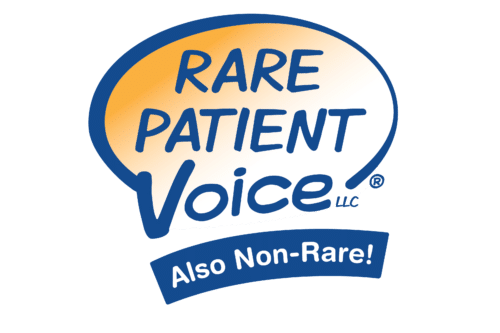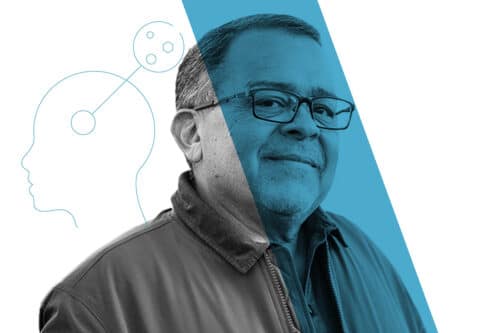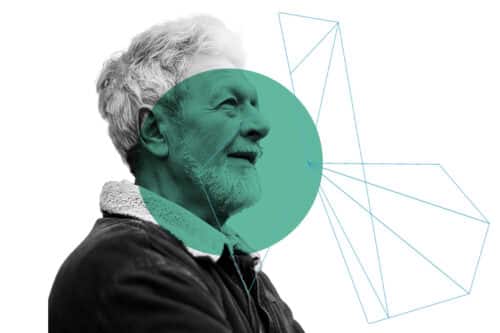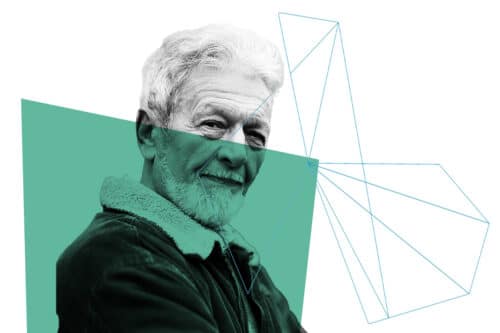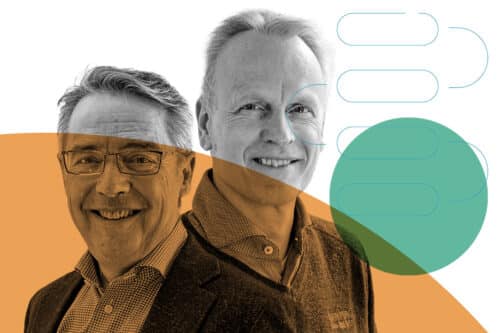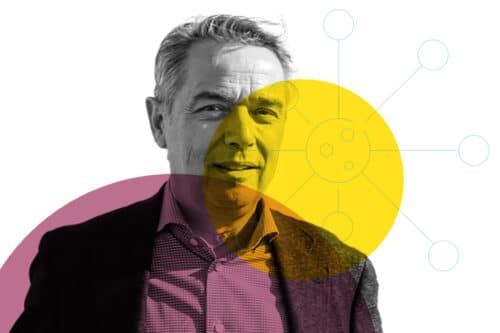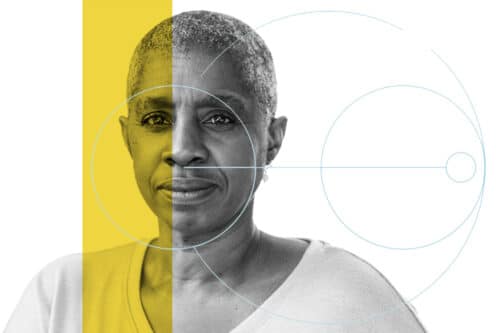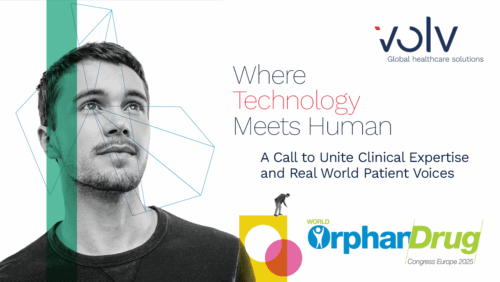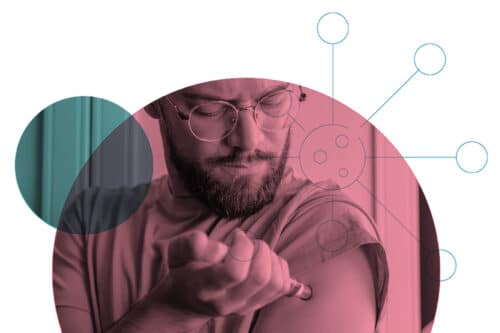How AI-driven insights from RWD accelerate the diagnosis and treatment of undiagnosed patients: A case study in alpha-1 antitrypsin deficiency
View now: scroll down to watch the recording
Discover how Volv Global, in collaboration with Takeda, Cleveland Clinic, and Komodo, applied AI-driven insights from real-world data (RWD) to rapidly identify previously undiagnosed alpha-1 antitrypsin deficiency (AATD) patients enabling earlier diagnosis, more equitable care, and personalised interventions at scale.
Artificial intelligence (AI) can uncover hidden patterns in electronic health records (EHRs) that traditional clinical reviews often miss, supporting earlier rare disease detection and guiding the selection of the most appropriate treatments.
In this webinar, we will explore how AI and real-world data (RWD) are transforming rare disease diagnosis and treatment, using alpha-1 antitrypsin deficiency (AATD) as a practical case study. You’ll learn how a collaboration between Volv Global, Takeda, Cleveland Clinic, and Komodo harnessed AI-driven healthcare insights to accelerate early detection, refine treatment pathways, and achieve meaningful improvements in the patient journey. Discover more in our insights.
What will you learn?
AI and RWD Can Identify Undiagnosed Patients Earlier
Discover how Volv Global’s machine learning model accurately flagged more than 16,000 previously undiagnosed AATD patients from a large, diverse patient database demonstrating the model’s precision, and reliability in real world clinical settings.
Identify undiagnosed patients earlier → Enhanced Patient Identification & Diagnosis
AI Reduces Clinical Bias and Healthcare Disparities
Learn how this AI-driven rare disease detection approach identified a significantly higher proportion of likely undiagnosed AATD cases among underrepresented populations compared to conventional methods ensuring more equitable patient care and addressing diagnostic disparities in healthcare.
Diagnostic disparities in healthcare → Value & Access HEOR
Collaboration as the True Game-Changer
Hear from Takeda, Cleveland Clinic, and Komodo Health experts on the collaboration methodology that powered this project. Volv Global’s flexible co-creative partnership model goes beyond static solutions, enabling meaningful improvements in patient outcomes.
Collaboration methodology → Commercial Excellence
RWD Insights and Predictive Analytics Improve Clinical Outcomes
See how predictive analytics born from real-world data insights, validated by international clinical experts, enable patient stratification, earlier interventions, and tailored care strategies — delivering measurable improvements in the ongoing AATD project.
Predictive analytics in healthcare → Predict Patient Outcomes
Personalization and Precision in Patient Care
Understand how AI-driven phenotyping and patient stratification allow healthcare providers and pharmaceutical teams to deliver personalized, targeted treatments optimizing therapeutic outcomes and improving healthcare resource efficiency.
Patient stratification → Stratifying Patient Cohorts
Of interest to
- Pharma: Clinical Development
- Pharma: Medical Affairs
- Pharma: HEOR
- Pharma: Commercial Excellence
- Healthcare Providers
Links
- Conference Posters at the ATS 2025
- Poster: Alpha-1 Antitrypsin Deficiency: Why millions remain undiagnosed
- Journal publication on foundational model (based on Komodo dataset)
- ATS abstracts on overcoming racial biases on AATD diagnosis and treatment (based on Komodo dataset)
- ATS abstracts from phase one (model calibration into CCF EMR):
View now: scroll down to watch the recording
Speakers
Marie Sanchirico, PhD, MBA
Senior Medical Director, Takeda Pharmaceuticals
Marie Sanchirico, PhD, MBA is an immunologist and medical affairs leader with over 15 years of experience in evidence generation, launch excellence and market access. Marie is currently a Senior Medical Director at Takeda, supporting their flagship brand, Entyvio, and previously helped launch eight treatments with Sanofi Genzyme. Prior to joining industry, Marie worked in academia at UMASS Medical School and received her bachelor degree at Ithaca College, PhD from UMASS, Amherst and MBA with Boston University. Outside of work, Marie treasures time with her three daughters, family and friends, is a dedicated yogi and loves to travel.
James K Stoller, MD, MS
Chief of Education, Cleveland Clinic
Dr Stoller is Chief of Education at Cleveland Clinic. He holds the Jean Wall Bennett Chair in Emphysema Research and the Samson Global Leadership Academy Chair at Cleveland Clinic. He is a pulmonary/critical care physician in the Cleveland Clinic Integrated Hospital Institute. He serves as the Senior Associate Dean for Academic Affairs (Cleveland Clinic Lerner College of Medicine) in the Case Western Reserve University School of Medicine.
His clinical research has focused on chronic obstructive pulmonary disease, especially alpha-1 antitrypsin deficiency, and on strategies of care delivery, especially respiratory therapy. He has authored/edited 20 books (including 6 editions of Egan’s Fundamentals of Respiratory Care), over 386 peer-reviewed reports, 88 chapters and more than 125 abstracts, and serves on the editorial board for Respiratory Care and previously Clinical Pulmonary Medicine and Critical Care Medicine. He also serves as the Section Editor on COPD for UpToDate.
Vickram Tejwani
Assistant Professor of Medicine, CCLCM/CWRU School of Medicine, Cleveland Clinic
Vickram Tejwani, MD a physician-scientist with joint appointments in the Department of Pulmonary and Critical Care and the Department of Genome Sciences and Systems Biology at Cleveland Clinic. Clinically, he serves as a referral physician statewide and nationally for complex cases of asthma, COPD, and alpha-1 antitrypsin deficiency. His research focuses on translational investigational of these three diseases to better understand predictors of worse disease and treatable traits, for which he holds NIH and other Foundational grants. As a part of this, Dr Tejwani is highly interested in technology for both case finding and identifying individuals at high risk of disease progression.
Scott Bryant
AVP, Partnerships, Komodo Health
Scott Bryant brings over 20 years of experience in the life sciences industry, combining a passion for innovation with a proven track record of impact. He began his career at Novo Nordisk, where he was recognized as an award-winning representative, before transitioning into the data and technology space. For the past five years, Scott has been with Komodo Health, partnering closely with top consultancies to transform their vision and expertise into measurable results. Through deeply collaborative relationships, he helps organizations unlock the full potential of data to drive meaningful outcomes across healthcare and life sciences.
Vahid Esmaeili, PhD
Data Science & Digital Health Director, Volv Global
Vahid Esmaeili is the Data Science and Digital Health Director at Volv Global. He has extensive experience at the intersection of medical devices, AI-driven healthcare, and neuroscience. He combines scientific rigor, analytical thinking, and industry expertise to transform complex challenges into impactful, scalable solutions that improve patient outcomes. Passionate about leveraging technology to bridge science, innovation, and healthcare, Vahid leads initiatives that deliver meaningful improvements in the field. Born and raised in Iran, he holds an M.Sc. in Biomedical Engineering from Sharif University of Technology and a Ph.D. in Neuroscience from SISSA in Italy, and has led multidisciplinary research at EPFL in Switzerland.
With thanks to The Evidence Base.
View now: scroll down to watch the recording
FAQs: How AI and Real-World Data Transform Patient Diagnosis
Q1. What is alpha-1 antitrypsin deficiency (AATD)?
AATD is a rare genetic condition that can cause serious lung and liver disease. It is often underdiagnosed because its symptoms overlap with more common conditions like asthma or COPD.
Q2. How does AI help in identifying undiagnosed patients?
Artificial intelligence (AI) analyzes patterns in electronic health records (EHRs) and real-world data that may not be visible to clinicians in routine practice. This helps identify undiagnosed patients earlier, supporting more timely interventions.
Q3. Why is real-world data (RWD) important in rare disease detection?
RWD provides insights from actual patient journeys, beyond controlled clinical trials. Using RWD enables predictive analytics, patient stratification, and earlier diagnosis — improving outcomes for patients with difficult-to-detect diseases.
Q4. How did Volv Global collaborate on this project?
Volv Global partnered with Takeda, Cleveland Clinic, and Komodo Health to apply AI methodologies on RWD to generate insights for identifying AATD patients. The project combined clinical expertise, advanced technology, and a collaborative approach to deliver measurable improvements.
Q5. Who should attend this webinar?
This session is designed for professionals in pharma clinical development, medical affairs, HEOR, commercial teams, and healthcare providers who want to learn how AI and RWD can transform rare disease detection and treatment.
Q6. Where can I learn more about Volv Global’s work in rare disease detection?
Explore Volv Global’s initiatives in Finding Patients, Earlier Detection, and Case Studies for more real-world examples.



